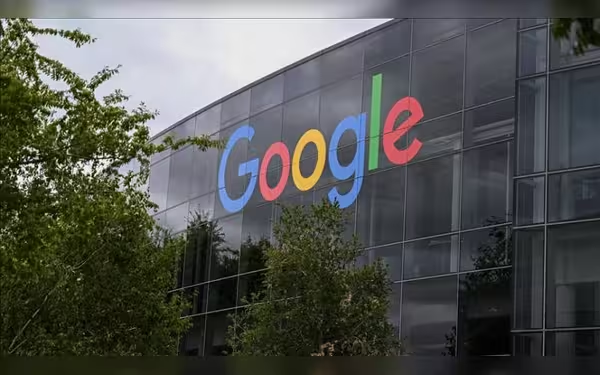Saturday, November 16, 2024 07:35 PM
European Court of Justice Overturns Google’s $1.7 Billion Fine
- ECJ annuls $1.7 billion fine on Google.
- Ruling highlights challenges in regulating tech giants.
- Case sets precedent for future competition regulations.
 Image Credits: nation_pk
Image Credits: nation_pkThe European Court of Justice has annulled a $1.7 billion fine against Google, highlighting regulatory challenges in the tech industry.
The recent ruling by the European Court of Justice (ECJ) has sent ripples through the tech industry, particularly concerning Google and its advertising practices. On Wednesday, the ECJ annulled a hefty fine of $1.7 billion that was originally imposed by the European Commission. This fine was related to allegations that Google had engaged in abusive advertising practices through its AdSense platform. The case has been a significant point of contention in the ongoing discussions about competition and market dominance in the digital age.
The fine, which was levied five years ago, was deemed erroneous by the ECJ. According to the court's statement, the European Commission failed to adequately demonstrate that the three specific clauses in Google’s advertising agreements constituted an abuse of its dominant position in the market. This ruling highlights the complexities involved in regulating large tech companies and the challenges faced by regulatory bodies in proving their cases.
Google AdSense serves as a crucial intermediary for publishers, allowing them to display advertisements on their websites and earn revenue. The Google Services Agreement (GSA) includes various clauses that govern how this ad service operates. The European Commission had pointed to three particular clauses—exclusivity, placement, and prior authorization—as the basis for its fine, arguing that they hindered competition in the advertising market.
However, the ECJ's decision underscores the importance of thorough and precise assessments when it comes to regulatory actions against major corporations. The court's ruling not only impacts Google but also sets a precedent for how similar cases may be handled in the future. It raises questions about the balance between fostering competition and allowing companies to operate within their business models.
The annulment of the $1.7 billion fine against Google serves as a reminder of the ongoing tug-of-war between regulatory authorities and tech giants. As the digital landscape continues to evolve, it is crucial for regulators to adapt and ensure that their actions are well-founded and justified. This case illustrates the need for a careful approach to regulation, one that protects competition while also recognizing the complexities of modern business practices. As we move forward, it will be interesting to see how this ruling influences future regulatory efforts and the broader conversation about competition in the tech industry.













